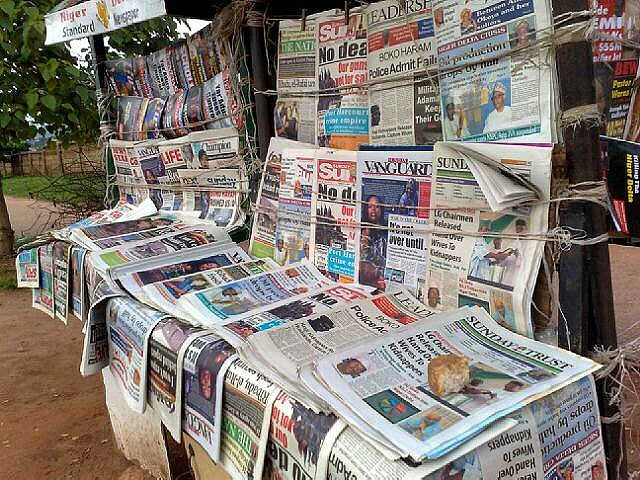
ECONOMIC POLICY: THE CASE AGAINST HIGH INTEREST RATES IN TIME OF CONTAGION
THE TIME IS NOW – CORRECT THE INTEREST RATE
By Bola Ahmed Tinubu
The economic fallout from the coronavirus may present the best, most pressing case for revising the CBN’s high interest rate policy. The undue rates penalise domestic investment and consumer borrowing.
This reduces both aggregate domestic supply and,to a lesser degree,aggregate domestic demand. The chronic gap between domestic supply and demand has been filled by bloated levels of imports & encouraged an overvalued exchange rate that the high interests have helped produce.
In normal times, the high interest rates also attract significant foreign financial speculation, the ever-ominous hot money. While in the short-term, the foreign speculation boosts financial inflows.
Over time, as compound interest payments become due on these foreign investments, the nation will lose an ever-increasing amount of money to satisfy foreign debt obligations. In the short run, high rates seem to attract foreign capital and spur the economy while giving it discipline against inflation. In the longer-term, all of this is untrue. High rates give us the worst of both worlds.
They stifle domestic investment and incomes while pushing up inflation and exposing an ever-increasing share of our financial system to foreign manipulation and dependence.
Put another way, if you take a single picture early in the process, the high interest rate policy looks good at that moment in time. However, if you view the entire movie, you will see an ending that is both painful and unnecessary.
The Central Bank of Nigeria has demonstrated its financial agility by establishing a growing number of special financing programs for various industries and sectors of the economy. While these programs look good at first glance, they also expose important contradictions.
The special schemes are an implicit admission that normal rates stifle investment borrowing and thus suppress the economy. The extraordinary schemes would not be required if the general interest rate was at a proper level.
By establishing the special programs, the CBN attempts the impossible. On one hand it defends the general rate as prudent. On the other, it proliferates special exceptions in order to spur investment borrowing that the general rate has heretofore stifled.
This complex CBN rear-guard action does not serve the greater purpose. It merely prolongs the inevitable: We must retreat from high interest rates if we want investment borrowing to attain levels that actually increase private-sector growth and job creation.
The modern global economy is built on credit. Prosperous nations have built success based on the sustained ability to use credit to generate high levels of domestic investment as well as allow for significant consumer financing.
THE STORY THUS FAR
The current form of our financial system is antithetical to growth. Broad and diffused growth was not the goal. Such growth contravened the underlying tenet of military rule – tight, centralised control of political power and economic resources.
There were no nodes of power truly independent from the centre. Nor did this situation foster creative and innovative economic thinking leading to sufficient business start-ups that might have grown and diversified the economy.
Thus, the banking system became one intended to bar most businesses and people from access to sufficient commercial and consumer credit, a system constructed to suppress large-scale independent economic activity unless expressly sanctioned and approved by arbitrary power.
As such, we are in a situation where the banking system is not sufficiently governed by the rational dynamics of economic maximization. Without optimal financial sector support, the productive economy has failed to grow as it should.
A DANGEROUS OLD FALLACY
Defenders of the high interest rate policy claim high interest rates quell inflation and maintain sound exchange rates. Many local economists who remain wedded to a brand of conservative monetarism support this position.
However, that school of thought has been discredited by the failures of Thatcherite policies of the UK in the 1980s, by monetary policies implemented to cure the 2008 financial crisis and by the financial policy moves being undertaken today to fight the coronavirus.
LONG TERM POSITIVE RELATIONSHIP BETWEEN HIGH RATES AND INFLATION
Over time, high rates cause more inflation than they prevent. In the initial phase, high rates might lower inflation. Feedback loops created by the initial high rates will eventually encourage inflation.
EXCHANGE RATE AND THE ECONOMY
If we went to a freely floating exchange rate, the naira would devalue. This means our currency is overvalued in terms of our trade with the outside world.
This overvalued exchange rate is buoyed by high interest rates.
CORONAVIRUS AND THE OPPORTUNITY TO LOWER INTEREST RATES
Another consideration we must weigh regarding interest rates is how lowering rates along with other innovations may unlock the potential for real estate to be catalyst for economic growth at this moment.
CONCLUSION
High interest rates are a fundamental drag on national economic growth. Only our unreliable power supply may loom as a bigger impediment to national prosperity.
Lower rates will spur domestic investment and production. This creates both jobs and wealth. High rates serve only to suppress these vital factors. Lower rates will have some negative short-term impact on inflation and the exchange rate.
However, in a twist of irony, the economic dislocations caused by the coronavirus serve to mitigate those temporary negative consequences. If there is a time to reduce interest rates, that time is now.













